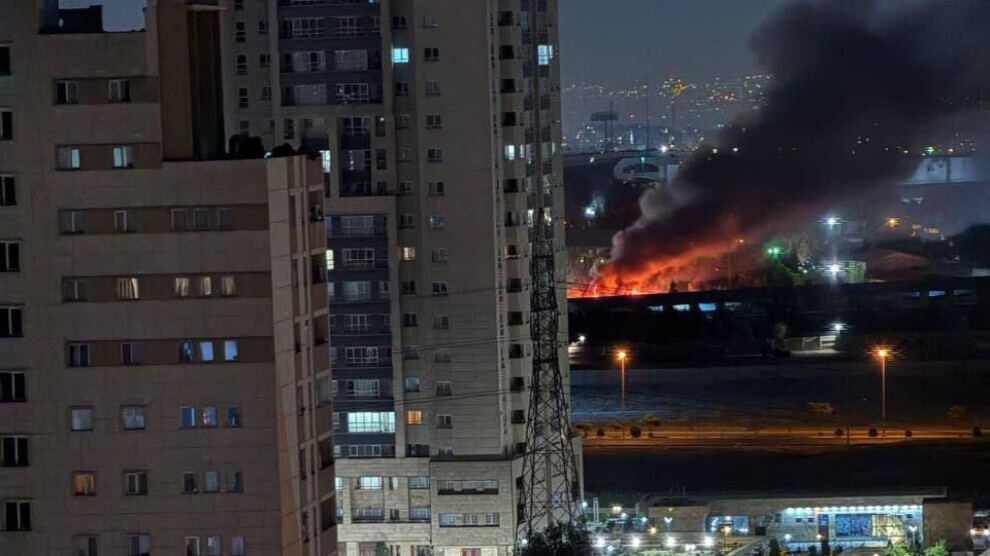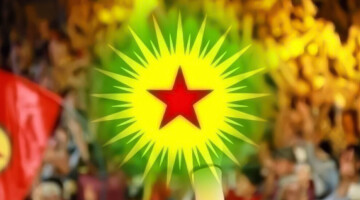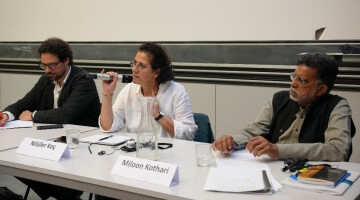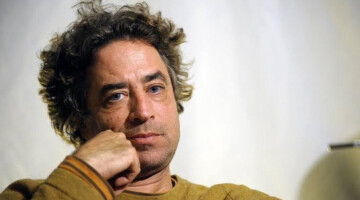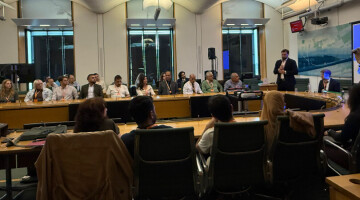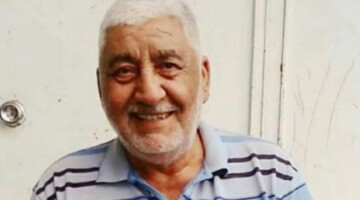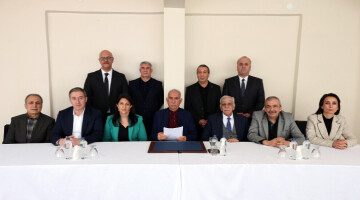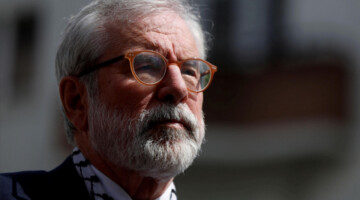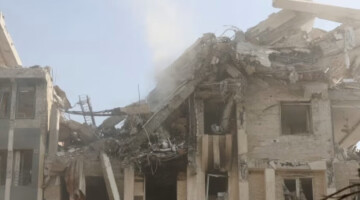The Israeli military attacked targets in Iran last night. The attack was directed against military facilities and suspected sites of Iran's nuclear program, among other targets. According to Iranian state media, several high-ranking military officials and well-known nuclear scientists were killed in the attack. Tehran threatened comprehensive retaliation.
According to Iranian sources, the headquarters of the Revolutionary Guard Corps in Tehran was hit. Among those killed were Major General Hossein Salami, one of the most influential commanders of the elite forces, and Chief of Staff Mohammed Bagheri. Several other high-ranking officers are also reported to have been killed. In addition, Iranian authorities confirmed the deaths of at least four nuclear scientists, including Mohammed Mehdi Teherantchi and Feredun Abbasi-Dawani.
Iran has temporarily appointed Ahmed Vahidi as commander of the Revolutionary Guards Corps and Habibullah Seyyari as Chief of the General Staff. Both men have held high-level military and political positions in the past.
In the meantime, Iran will reportedly not participate in indirect nuclear talks with the US scheduled for June 15 in the Omani capital following the Israeli aggression.
Iran: Attack will not go unanswered
The government in Tehran responded with harsh rhetoric. In an official statement, the army said it would respond to the “act of aggression” without restraint. The attack “will not go unanswered,” emphasized Supreme Leader Ayatollah Ali Khamenei. In response, Iran closed its airspace, and the international airport in Tehran temporarily suspended operations.
Israel stated that the air strike was a targeted military operation to avert an existential threat posed by Iran's nuclear program. Prime Minister Benjamin Netanyahu said in a televised address that the operation would “continue until the threat is eliminated.” The Defense Ministry spoke of a “preventive strike.” According to Israeli sources, numerous uranium enrichment facilities and parts of the air defense system in western Iran were destroyed.
The Israeli military went on high alert. Schools and many public institutions remained closed for fear of possible retaliatory attacks. Underground treatment rooms were prepared in hospitals. Security measures were also increased at Israeli diplomatic missions abroad.
Incidents in Syrian and Jordanian airspace
Meanwhile, incidents in the airspace have been reported from Syria and Jordan. Israeli fighter jets are said to have shot down Iranian drones that came from the direction of Syria. Jordan also reported intercepting flying objects. Iraq and Jordan had previously closed their airspace as a precautionary measure.
International actors call for de-escalation
Developments since last night have been met with numerous reactions internationally. While the United States stated that it had not been involved in the operation and US President Donald Trump emphasized that he hoped Iran would return to the negotiating table after the Israeli attacks, the United Nations called on both sides to de-escalate. UN Secretary-General António Guterres warned against further escalation of the situation in the region.
China and Russia were critical, as were several Middle Eastern countries, including Saudi Arabia, the United Arab Emirates, and Turkey. Ankara called it a “provocation that serves Israel's strategic policy of destabilization in the region.” The Yemeni Houthi militia, which is allied with Iran, threatened consequences.
The International Atomic Energy Agency (IAEA) expressed alarm but initially reported no evidence of increased radiation levels at the affected sites. The facilities in Natanz and Fordo are considered key sites in Iran's nuclear program. Israel claimed that the strike had caused significant damage, particularly to uranium enrichment activities in Natanz.
Meanwhile, Tehran accuses Washington of having at least indirectly enabled the attack. The Foreign Ministry stated that such an operation would not have been possible without the knowledge or approval of the United States. The US government rejected the accusations and said its priority was to protect its own troops and facilities in the region.
New war in the Middle East?
The escalation is rooted in the long-standing dispute between Israel and Iran over the latter's nuclear program and Tehran's role in the region. The latest exchange of blows follows a series of mutual attacks that have been occurring at increasingly shorter intervals since Hamas' attack on Israel in October 2023.

